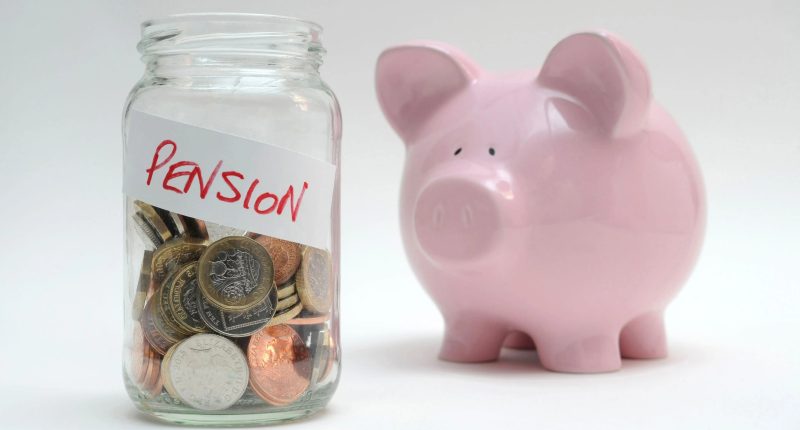MILLIONS on the state pension are set to get a pay rise within weeks and we reveal the key date to circle in your diary.
The Government confirmed that rates will increase by £901 in April due to the triple lock remaining in place.
Chancellor Jeremy Hunt first revealed that state pension payments will be going up will be going up by 8.5% in his Autumn Statement.
Pension Credit will also increase by the same amount.
The amount pensioners get from the state rises every year to keep up with the cost of things like food and household bills.
The triple lock system sees the state pension rise in line with whatever is highest out of: wages for May to July, 2.5% or September’s inflation figures.
READ MORE IN MONEY
Growth in employees’ average total pay was 8.5% in the three months to July last year, while the UK’s rate of inflation remained at 6.7% in September.
The Department for Work and Pensions confirmed both state pension and pension credit will rise from April 8 – the first Monday after the new tax year begins.
It means pensioners on the new state pension will be looking at a boost of as much as £901 a year from that date.
But a code in your National Insurance number tells you the exact date you will see payments increase.
Most read in Money
This is because the number dictates what day you receive your pension money.
State pension is paid every four weeks and the day you’re paid usually depends on the last two digits of your NI number.
If the digits are between 00 and 19, you are paid on a Monday.
It’s Tuesday if they are between 20 and 39, and Wednesday if the digits are between 40 and 59.
Numbers 60 to 79 are paid on a Thursday and numbers 80 to 99 are usually paid on Fridays.
This is up from just over £10,600 to £11,501 a year. And a weekly rise from £203.85 to £221.20 – a £17.35 increase.
As an example, if your NI number ends in 65, you could see your payment rise on April 11, if that’s the time of the month you usually get paid.
Bear in mind, state pension is usually paid every four weeks, so if you are expecting a payment between April 1 and 5, you might not actually see your pay rise until early May.
It’s important to note though that this is for those entitled to a “full” new state pension.
How much individuals get is based on the number of qualifying years they’ve accrued.
Older pensioners who retired before April 2016 will get a weekly rise from £156.20 to £169.48, and an annual rise from £8,122.40 to £8,812.96.
Other elements of the old state pension system, mainly “additional” state pensions such as SERPS, will rise in line with the increase in CPI inflation for September 2023 which was 6.7%.
Last April, pensions rose by 10.1% in line with the September 2022 inflation rate.
Back in April 2022, state pension payments went up by 2.5%.
Ministers have previously refused to guarantee the triple lock’s continuation beyond the election as inflation and earnings have spiralled.
Work and Pensions Secretary Mel Stride warned it was “not sustainable” in the long term.
But Rishi Sunak had said that he would not touch the triple lock, despite the concerns about cost.
What are the different types of pensions?
WE round-up the main types of pension and how they differ:
- Personal pension or self-invested personal pension (SIPP) – This is probably the most flexible type of pension as you can choose your own provider and how much you invest.
- Workplace pension – The Government has made it compulsory for employers to automatically enrol you in your workplace pension unless you opt out.
These so-called defined contribution (DC) pensions are usually chosen by your employer and you won’t be able to change it. Minimum contributions are 8%, with employees paying 5% (1% in tax relief) and employers contributing 3%. - Final salary pension – This is also a workplace pension but here, what you get in retirement is decided based on your salary, and you’ll be paid a set amount each year upon retiring. It’s often referred to as a gold-plated pension or a defined benefit (DB) pension. But they’re not typically offered by employers anymore.
- New state pension – This is what the state pays to those who reach state pension age after April 6 2016. The maximum payout is £203.85 a week and you’ll need 35 years of National Insurance contributions to get this. You also need at least ten years’ worth to qualify for anything at all.
- Basic state pension – If you reach the state pension age on or before April 2016, you’ll get the basic state pension. The full amount is £156.20 per week and you’ll need 30 years of National Insurance contributions to get this. If you have the basic state pension you may also get a top-up from what’s known as the additional or second state pension. Those who have built up National Insurance contributions under both the basic and new state pensions will get a combination of both schemes.
How much state pension will I get?
The amount of new state pension you receive depends on your National Insurance (NI) record throughout your adult life.
If you have made at least 35 years of qualifying NI contributions, you may qualify for the maximum amount, outlined above.
The same is true if you have received equivalent credits on your NI record for raising children or providing care.
If you don’t have 35 years, you may be able to top up your record by paying in voluntary NI contributions.
To get the full basic state pension you will need 30 years of NI contributions or credits.
To get any state pension at all, you will need at least 10 years on your NI record.
What age do I get the state pension?
In response to rising life expectancy, the age at which you become eligible to receive the state pension has been going up.
The age is now 66 for both men and women and is set to reach 68 by 2039.
How do I claim the state pension?
You won’t automatically get the state pension – you need to claim it once you’re eligible.
You should receive a letter no later than two months before you reach state pension age, explaining what to do.
You can find out more here.
You can choose to defer getting the state pension – you don’t have to take it as soon as you are eligible when you reach state pension age.
Leaving your state pension untouched can boost the amount you eventually get.
If you opt to defer your state pension, your entitlement increases by the equivalent of 1% for every five weeks you do so.
As the state system can be tricky to navigate, a key part of any pension planning involves requesting a state pension forecast.
READ MORE SUN STORIES
This will help you get your head around how much you could be eligible to receive, and from what age.
Meanwhile, we also reveal the exact date within weeks millions on Universal Credit and benefit will get a pay rise.
Do you have a money problem that needs sorting? Get in touch by emailing [email protected].
Plus, you can join our Sun Money Chats and Tips Facebook group to share your tips and stories.










